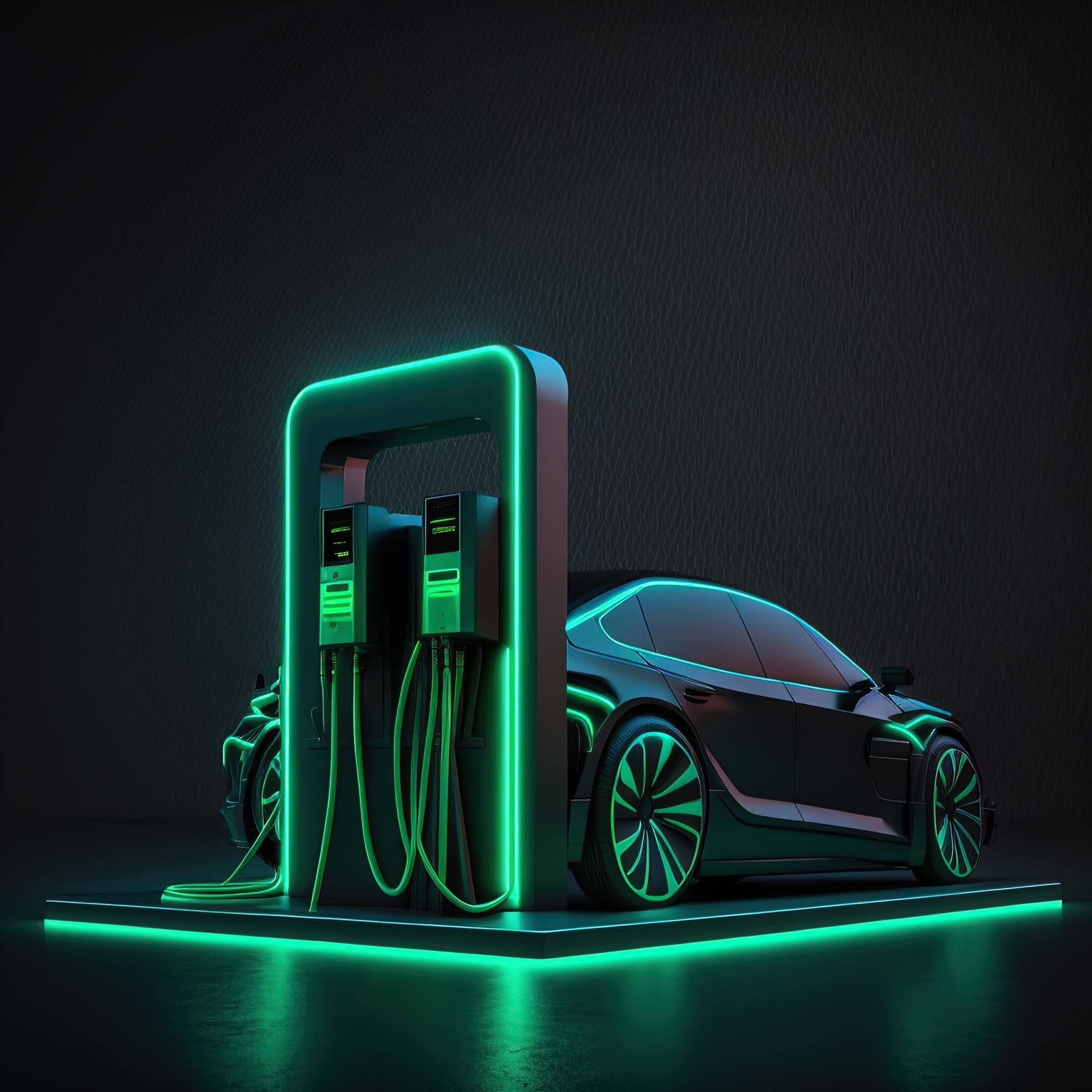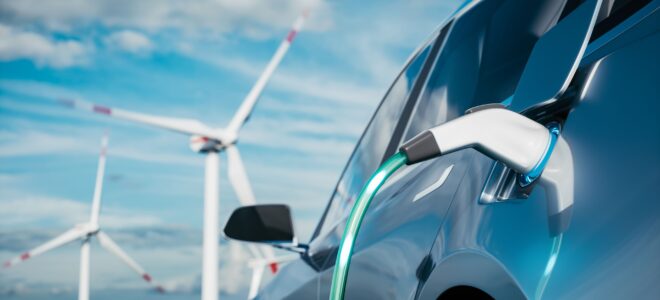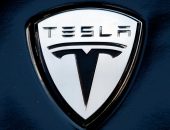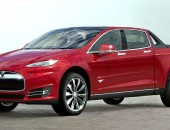In the fast-paced world of personal transportation, a quiet revolution is underway. Electric vehicles (EVs) are rapidly changing the way we perceive and interact with transportation.
As the environmental concerns continue to escalate, the shift towards EVs offers a glimmer of hope, promising a cleaner and greener future. But beyond their eco-friendly appeal, EVs are also reshaping the way we travel, bringing about a transformation that goes far beyond the elimination of tailpipe emissions.
In this article, we delve into the electric revolution, exploring the myriad ways in which EVs are shaping the future of personal transportation. From innovative technology to infrastructure advancements and changing consumer preferences, the landscape of personal mobility is evolving at an astonishing pace.
So lets embark on this electrifying journey and uncover how EVs are paving the way for a new era of transportation.
The Rise of Electric Vehicles in Personal Transportation
 As the global demand for eco-friendly and sustainable transportation continues to gain momentum, the rise of electric vehicles (EVs) in personal transportation has become an undeniable phenomenon.
As the global demand for eco-friendly and sustainable transportation continues to gain momentum, the rise of electric vehicles (EVs) in personal transportation has become an undeniable phenomenon.
With their zero-emission capabilities and advanced technological features, EVs are reshaping the future of how we commute. From sleek and efficient sedans to powerful and versatile SUVs, there is an ever-expanding range of electric vehicles on the market catering to diverse consumer needs.
As the world transitions away from fossil fuels, the convenience and long-term cost savings offered by EVs are becoming increasingly attractive to individuals seeking a greener and more sustainable mode of transport. With a seamless blend of style, performance, and environmental consciousness, electric vehicles are poised to transform the way we navigate our daily lives.
The Environmental Impact: How EVs are Reducing Emissions and Promoting Sustainability
As the world grapples with the environmental consequences of traditional gasoline-powered vehicles, the rise of electric vehicles (EVs) has emerged as a promising solution. EVs are playing a significant role in reducing emissions and promoting sustainability.
By relying on electricity rather than fossil fuels, EVs emit considerably lower levels of greenhouse gases and pollutants, leading to cleaner air and mitigating climate change. In addition, the sustainable practices behind the production and disposal of EVs are contributing to a greener future.
With each passing day, the adoption of EVs gains momentum, transforming the landscape of personal transportation and paving the way for a more environmentally conscious tomorrow.
Advancing Technology: Key Innovations Driving the Electric Vehicle Industry
 As society steers towards a forward-thinking and sustainable future, the electric vehicle (EV) industry emerges as a driving force, transforming the landscape of personal transportation.
As society steers towards a forward-thinking and sustainable future, the electric vehicle (EV) industry emerges as a driving force, transforming the landscape of personal transportation.
Fueling this electric revolution are several key technological advancements that push the boundaries of what these eco-friendly vehicles can achieve. One such innovation lies in the development of advanced battery systems, capable of providing longer ranges, faster charging times, and enhanced performance.
These cutting-edge batteries leverage breakthrough materials and engineering techniques, propelling EVs into the mainstream market with their improved usability and efficiency. Moreover, the rise of autonomous driving presents another pivotal innovation, fostering a vision of intelligent, self-driving EVs that enhance safety, optimize traffic flow, and revolutionize the concept of commuting altogether.
By integrating state-of-the-art sensors, AI-driven algorithms, and real-time data processing, manufacturers are reshaping the mobility landscape, evoking a sense of anticipation for a future where transportation is not just greener but also smarter.
Infrastructure Challenges: Overcoming Obstacles to Widespread EV Adoption
As the electric vehicle (EV) industry gains momentum and paves the way for a future of sustainable personal transportation, it is confronted with significant infrastructure challenges that must be overcome to ensure widespread adoption. One of the major hurdles lies in the establishment of a comprehensive charging network capable of supporting the ever-increasing number of EVs hitting the roads.
This requires not only an extensive deployment of charging stations in residential areas, workplaces, and public places but also the development of fast-charging technologies to minimize charging times. Furthermore, the upgrade and reinforcement of the existing power grid to handle the additional demand from EV charging is a pressing concern.
Balancing the electricity load and making it more resilient against potential strain will be essential for accommodating the surge in EV usage. Additionally, the need for standardized charging protocols and interoperability among different charging networks adds another layer of complexity to the infrastructure development.
Overcoming these obstacles demands a collaborative effort between governments, industries, and stakeholders to lay the groundwork for a seamless and accessible EV charging infrastructure, ultimately propelling the electric revolution forward.
Economic Implications: The Economic Benefits and Opportunities of Electric Vehicles
 The rise of electric vehicles (EVs) is not only transforming the way we commute but also presenting a promising array of economic benefits and opportunities. As EV technology continues to advance, it is becoming increasingly evident that investing in electric transportation holds the potential to stimulate economic growth and reshape industries.
The rise of electric vehicles (EVs) is not only transforming the way we commute but also presenting a promising array of economic benefits and opportunities. As EV technology continues to advance, it is becoming increasingly evident that investing in electric transportation holds the potential to stimulate economic growth and reshape industries.
One significant advantage lies in the reduction of fossil fuel dependency, offering a long-term solution to escalating oil prices and geopolitical uncertainties. Moreover, the adoption of EVs has the potential to create thousands of new jobs across various sectors, from manufacturing and assembly to research and development.
The burgeoning demand for charging infrastructure has also opened up a lucrative market for entrepreneurs and investors, fostering innovation and job creation. Additionally, the increasing uptake of EVs can lead to a decrease in healthcare expenditures by improving air quality and reducing pollution-related illnesses, a burden that weighs heavily on national economies.
With the promise of reduced maintenance costs and significantly lower operational expenses compared to traditional vehicles, electric cars have the potential to enhance household savings and spur consumer spending in other sectors. By embracing this electric revolution, we have the opportunity to not only revolutionize personal transportation but also invigorate economic growth and create a sustainable future for all.
Conclusion
In conclusion, the electric revolution is undeniably shaping the future of personal transportation. With the rise of electric vehicles (EVs), we are witnessing a transformative shift towards sustainable and clean mobility.
EVs offer numerous advantages, including reduced carbon emissions, lower operating costs, and enhanced performance. As individuals, businesses, and governments increasingly recognize the importance of combating climate change and embracing cleaner technologies, the demand for EVs continues to grow.
Additionally, initiatives like ElecVenture, which aims to promote electric mobility and support the transition to EVs, play a crucial role in accelerating this transformation. As we embark on this electrified journey, it is evident that EVs are not just the future—they are the present—providing us with a greener and more sustainable way of moving forward.




